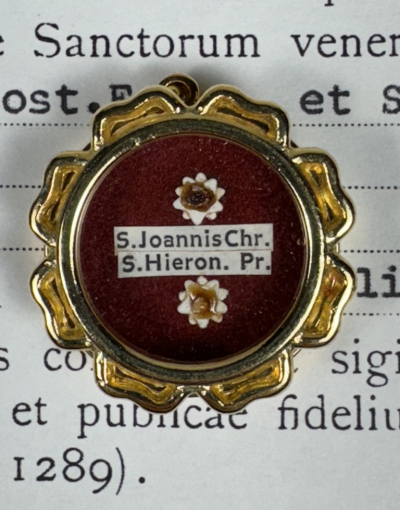Saint John Chrysostom (†407) was an important Early Church Father who served as archbishop of Constantinople. He is known for his preaching and public speaking, his denunciation of abuse of authority by both ecclesiastical and political leaders, his Divine Liturgy of Saint John Chrysostom, and his ascetic sensibilities. The epithet Chrysostomos, anglicized as Chrysostom, means "golden-mouthed" in Greek and denotes his celebrated eloquence. Chrysostom was among the most prolific authors in the early Christian Church. He is honored as a saint in the Eastern Orthodox, Oriental Orthodox, Catholic, Anglican, and Lutheran churches, as well as in some others. The Eastern Orthodox, together with the Byzantine Catholics, hold him in special regard as one of the Three Holy Hierarchs. The feast days of John Chrysostom in the Eastern Orthodox Church are 14 September, 13 November and 27 January. In the Roman Catholic Church, he is recognized as a Doctor of the Church. Because the date of his death is occupied by the feast of the Exaltation of the Holy Cross (14 September), the General Roman Calendar celebrates him on the previous day.
Saint Jerome († 420) was a priest, confessor, theologian and historian, who became a Doctor of the Church. He is best known for his translation of most of the Bible into Latin and he focused his attention to the lives of women and identified how a woman devoted to Jesus should live her life. He is recognized as a saint by the Roman Catholic Church, the Eastern Orthodox Church, the Lutheran Church, and the Church of England. He is a patron of archeologists; archivists; bible scholars; librarians; libraries; school children; students; and translators.









 Поменять язык на русский
Поменять язык на русский 